Belgium, Norway and Netherlands lead the decline of nominal Christianity in Europe
One in four Western Europeans say they are atheists, agnostics or have no particular religion, says a new Pew Research study conducted in 15 countries.
Pew Research · BRUSSELS · 30 MAY 2018 · 17:17 CET

Most self-identified Christians in Western Europe do not practice their faith.
This is one of the main conclusions of the newest Pew Research report on religion entitled “Being Christian in Wesern Europe”.
According to the research conducted in 15 European countries, about 18% of the population are church-attending Christians. 46% describe themselves as Christians but do not believe in the God of the Bible.
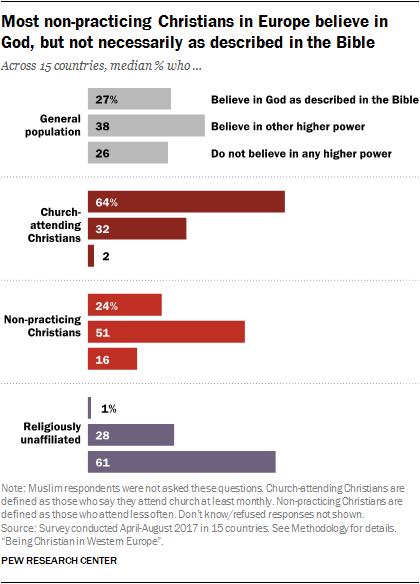
Furthermore, 24% of the population is “religiously unaffiliated”. This segment of the population has become very strong in countries like the Netherlands (48% of the population) Norway (43%) and Sweden (42%).
27% SAY THEY BELIEVE IN THE GOD OF THE BIBLE
According to this report, only 27% of the population in Western Europe believes in “God as described in the Bible”, 38% believe in some “other higher power”, and 26% do not believe in any higher power.
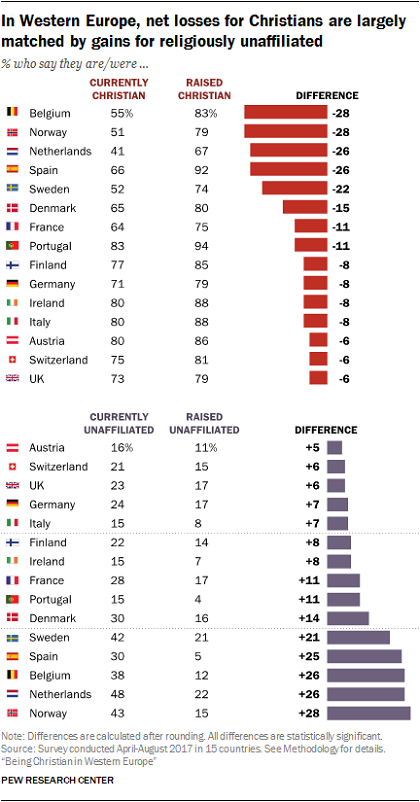
The decline of nominal Christianity is evident when looking at those who were “raised Christian” but no longer identify as such. In Belgium, these net losses are of -28% in one single generation, followed by Norway (-28%), the Netherlands (-26%), Spain (-26%), Sweden (-22%), Denmark (-15%), France (-11%) and Portugal (11%).
RELIGION VS. SCIENCE, SOCIAL JUSTICE ‘HIGHER FORCES’
It is in the Scandinavian countries were most people see an apparent conflict between religion and science. Four in ten people in countries like Norway, Sweden and Denmark believe “science makes religion unnecessary”. Interestingly, it is in these countries where church-going Christians most strongly disagree with the idea of such a conflict.
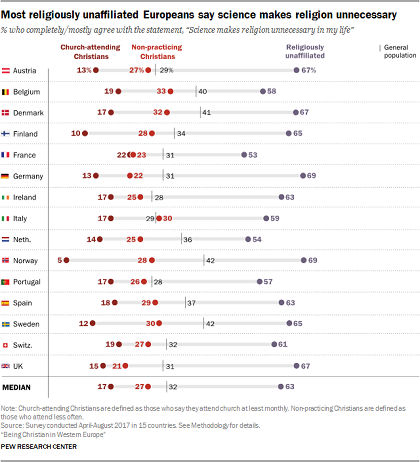
When it comes to the social work of churches, more than half of the population in all of the 15 countries agrees that “churches and other religious groups play an important role in helping the poor and needy”. The good image of the social impact of churches peaks at 80% in Finland and Spain.
LEGAL ABORTION AND SAME-SEX MARRIAGE
When asked about ethical issues, the data collected by Pew Research shows a big gap between the views of church-going Christians on one side, and non-practising Christians and unaffiliated people on the other side.
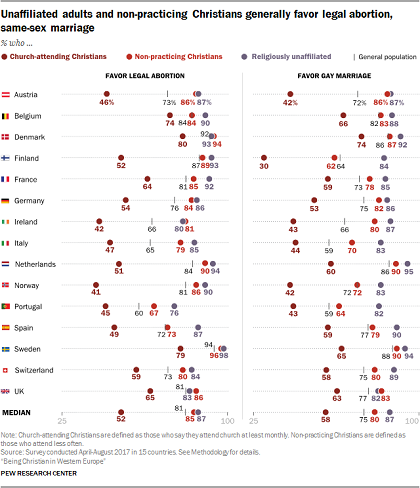
Legal abortion is favoured by 52% of church-going Christians, in contrast with 85% of non-practising Christians and 87% of religiously unaffiliated.
When asked about same-sex marriage, 58% of church-going Christians approve it, compared to 80% of non-practising Christians and 87% of religiously unaffiliated.
'DIFFERENCES BETWEEN NOMINAL CHRISTIANS AND UNBELIEVERS?'
The Pew Research report summarises the data collected by raising “some obvious questions: What is the meaning of Christian identity in Western Europe today? And how different are non-practicing Christians from religiously unaffiliated Europeans – many of whom also come from Christian backgrounds?”
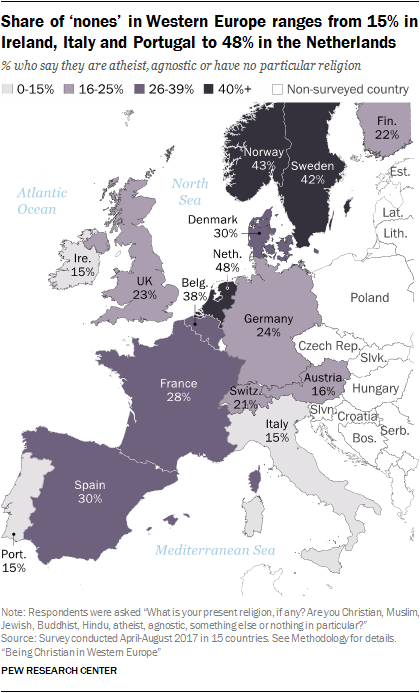
This Pew Research study was conducted between April and August of 2017, involving more than 24,000 telephone interviews in 15 European countries.
Published in: Evangelical Focus - europe - Belgium, Norway and Netherlands lead the decline of nominal Christianity in Europe
